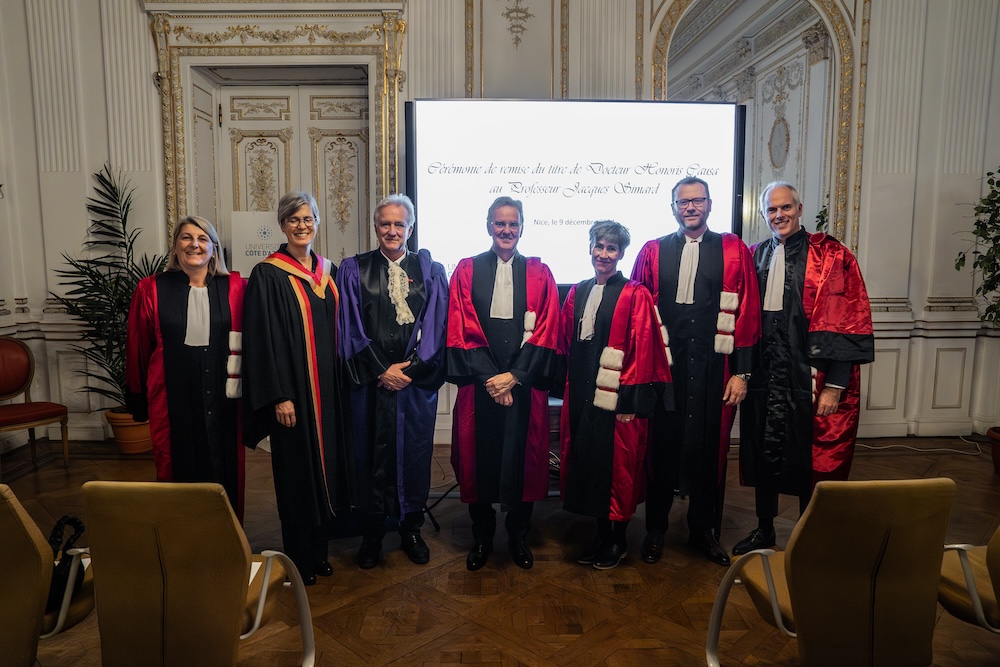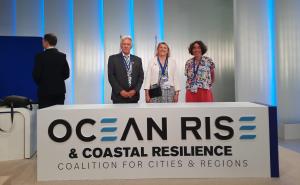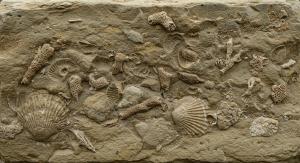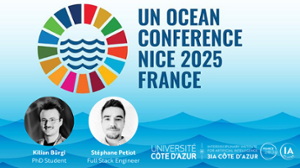on the December 10, 2024
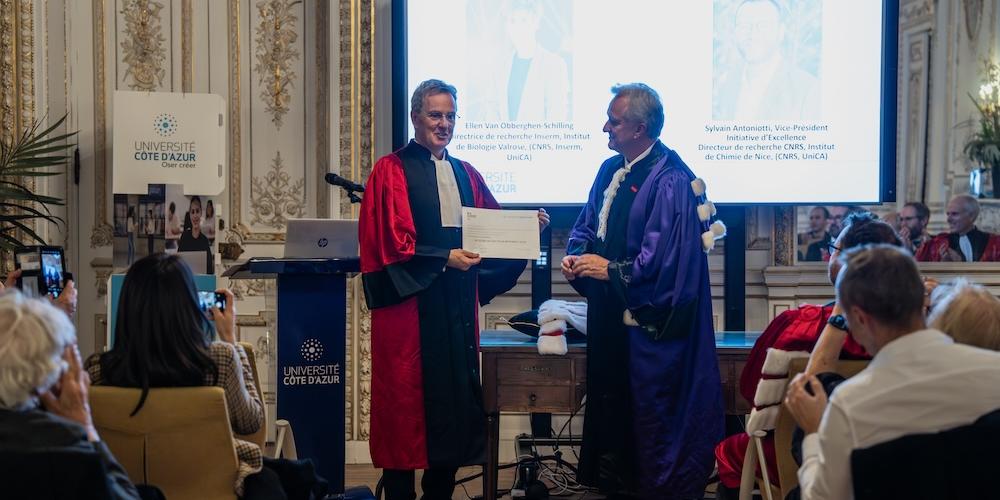
Jacques Simard, eminent Laval University researcher and leading figure in oncogenetics, received the prestigious degree of "Docteur Honoris Causa" from Université Côte d'Azur on December 9, 2024. This distinction recognizes his outstanding contributions to cancer research, his commitment to the advancement of scientific knowledge, and his significant impact on public health on an international scale.
With this title, Université Côte d'Azur wishes to recognize Professor Simard's humanistic approach, and in particular his commitment to young researchers and impact research, in the service of the common good. Indeed, Jeanick Brisswalter, President of Université Côte d'Azur, and Sophie D'Amours, Rector of Université Laval, took it in turns to underline not only the scientific excellence of Professor Simard's work, but also his commitment to it.
"By awarding the title of Doctor Honoris Causa to Jacques Simard today, Université Côte d'Azur recognizes not only the immensity of his contribution to science, but also his invaluable role in bringing our two institutions closer together. We honor a man whose career illustrates academic excellence, commitment to society and the power of collaborative work. Jacques Simard, over the years we have come to appreciate your dedication, your intellectual generosity and your scientific vision, which are a source of inspiration to us all. Through this award, our university wishes to express its admiration for you, and to further strengthen the ties that bind us to Université Laval. "Jeanick Brisswalter, President of Université Côte d'Azur.
"An internationally renowned scientist, Professor Simard is relentlessly committed to health, particularly women's health, in the fight against breast cancer. Professor Simard is not just a researcher, but a true ambassador for the impact of science on people's lives. His work embodies what the university can bring to society: not just knowledge, but real, tangible changes in medical practice. He is a model of the university that acts, that transforms, that responds to medical needs in a direct and lasting way. "Sophie D'Amours, Rector of Université Laval.
Professor Simard, Canada Research Chair in Oncogenetics, is recognized worldwide for his groundbreaking work in the early detection and prevention of breast and ovarian cancer. His research, combining scientific innovation and multidisciplinary collaboration, has led to significant improvements in screening strategies and patient quality of life. He stressed the importance of teamwork and the research environment: "Scientific research is not an individual sport. It relies on a set of interconnected factors that go far beyond personal efforts. It depends on fruitful collaborations, an environment conducive to innovation, institutional and financial support, and the chance to cross paths with brilliant minds. Without these elements, my achievements would not have had the same impact. Receiving this title is also a tribute to all those who have contributed to my scientific and academic career. "
The official award ceremony took place on December 9, on the Valrose campus, in the presence of leading figures from the academic, scientific and public worlds. This recognition is part of the Privileged Partnership between Université Côte d'Azur and Université Laval, and was attended by a delegation from Université Laval chaired by the Rector, Professor Sophie D'Amours.
The ceremony was a highlight in the institutional life of 2024, as illustrated by the conclusion of Professor Jacques Simard's acceptance speech:
"I would like to conclude by once again expressing my gratitude to the Université Côte d'Azur, which, by bestowing this honour on me, has spurred me on to pursue my quest for knowledge and my commitment to the academic community with even greater determination and passion. This honor also reminds me of the responsibility we bear, researchers and citizens alike, to respond to the major challenges facing our world. Rest assured that I will do my utmost to honor this distinction, by contributing to the advancement of medical knowledge, research and training for future generations. I sincerely thank you for this recognition, which is much more than a title: it represents an encouragement to continue my involvement in interdisciplinary research, in particular to improve cancer prevention, early detection and treatment. In this way, we can help save lives and improve public health for generations to come. Together, we have every reason to hope that, collectively, we can beat cancer. "
